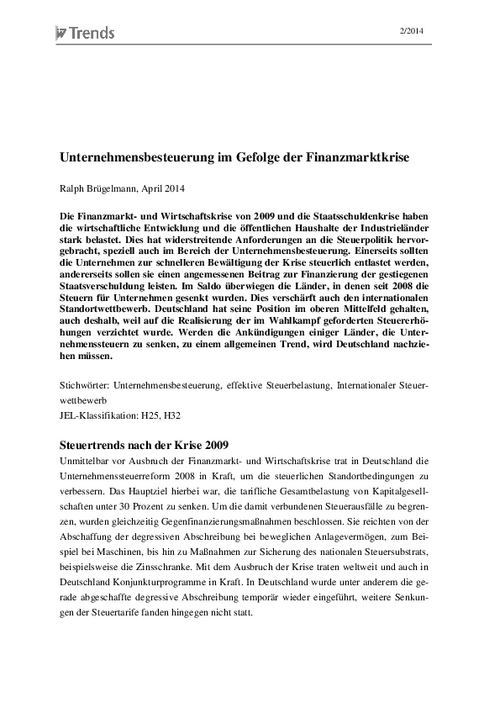The global financial and economic crisis of 2009 and the subsequent sovereign debt crisis in the Eurozone have put considerable strain on economic development and public budgets in industrialised countries. This has placed conflicting demands on fiscal policy, especially where corporate taxation is concerned. On the one hand, companies need to be relieved of some of their tax burden in order to be able to overcome the crisis more quickly, on the other hand they are expected to make an appropriate contribution to the financing of the increase in public debt. Overall the majority of countries have cut taxes on business since 2008. This has had the effect of intensifying competition between countries as locations for business. Germany has managed to defend its position in the upper half of the ranking, not least because the tax increases demanded in last year’s federal election campaign have not been implemented. Should the moves to cut corporate taxation announced by some governments become a general trend, Germany will be obliged to follow it.

Corporate Taxation in the Wake of the Financial Crisis
IW-Trends


Ralph Brügelmann: Unternehmensbesteuerung im Gefolge der Finanzmarktkrise
IW-Trends

More on the topic

Challenges for the debt brake
In 2019, Bardt et al. (2019) initially presented a comprehensive estimate of the unmet public investment needs in Germany not covered in household planning at the time, totaling around €460 billion over ten years.
IW
Global and European corporate tax reform concepts
The harmonization of corporate taxation at an international level has been on the political agenda for many years. Both the Organization for Economic Cooperation and Development (OECD) and the European Commission have presented reform projects in this regard, ...
IW